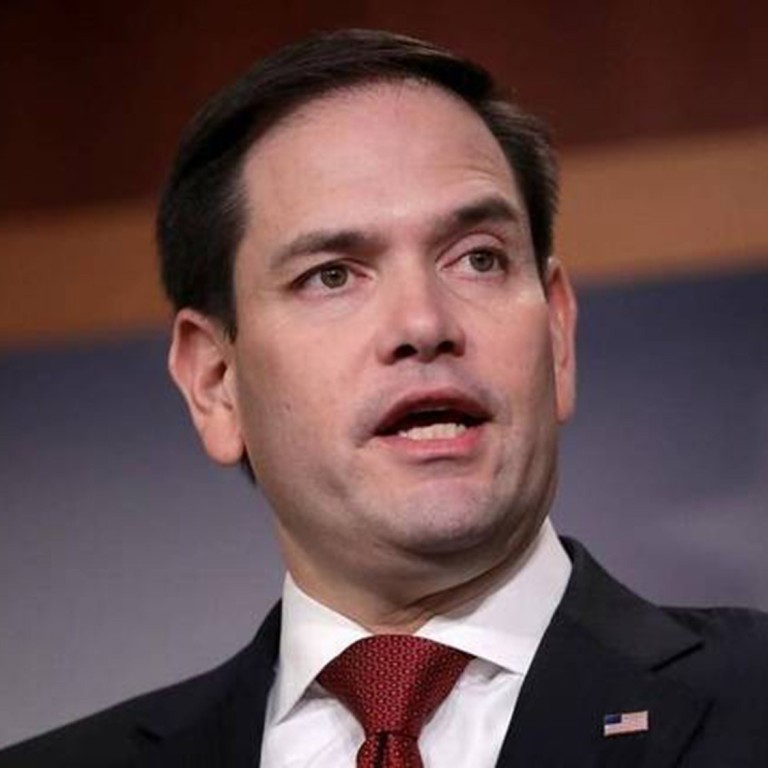
Marco Rubio urges US Congress to pass Uygur bill to counter China’s crackdown in Xinjiang
- Republican senator says human rights issues should not be overlooked for the trade deal or ‘intermingled’ with geopolitical issues
- Analyst sees proposed legislation as mostly symbolic and ‘separate to trade talks’
Speaking to CBS on Sunday, Florida Senator Marco Rubio – who last year introduced the bill that paves the way for sanctions against Chinese officials over human rights abuses in Xinjiang – also said human rights issues should not be overlooked for the trade deal or be “intermingled” with geopolitical issues between the world’s two largest economies.
“I will never accept the notion that somehow, in order to be able to sell them more things, we have to look the other way on some of the grotesque human rights violations that we’re seeing systemised on their part,” the Republican senator said.
With the US Congress reconvening on Monday, Rubio said he hoped lawmakers could resolve the differences between the House of Representatives and Senate bills to agree on a version soon that could be passed through Congress.
Once passed by Congress, the legislation would go to President Donald Trump to sign into law.
“I hope we can get a deal done with the House,” Rubio told CBS. “They passed a version of a Uygur human rights bill. We have our version. They’re pretty close, so we can get something done and signed.”
Since early 2017, the Chinese government has reportedly detained some 1 million Uygurs and other largely Muslim ethnic minorities in mass internment camps in Xinjiang, where inmates are subjected to political indoctrination. Beijing claims the facilities are “vocational training centres” and says they are a legitimate response to the threat of religious extremism.
China was furious when the House of Representatives passed the strongly worded Uygur bill in December and has threatened to retaliate. Chinese state media suggested at the time that Beijing may consider restricting US officials and lawmakers from visiting Xinjiang, and releasing an “unreliable entity list” that would include “relevant US entities”.
Lu Xiang, a specialist on US affairs at the Chinese Academy of Social Sciences, said the Xinjiang bill was mostly symbolic and he doubted it would be an effective card for Trump to play against Beijing. He said that was especially the case as tensions dramatically escalated with Iran following a US air strike on Friday that killed the country’s top military leader.
“Like the Hong Kong bill, [the Xinjiang issue] is separate to the trade talks, even though the Xinjiang bill is likely to have a negative effect on overall relations between China and the US,” Lu said.
“But so far, little has been done [by the US] after the Hong Kong bill was passed because the legislation, if implemented, could hurt the interests of the United States and US companies, many of which invest in mainland China and Southeast Asia through Hong Kong,” Lu said.

